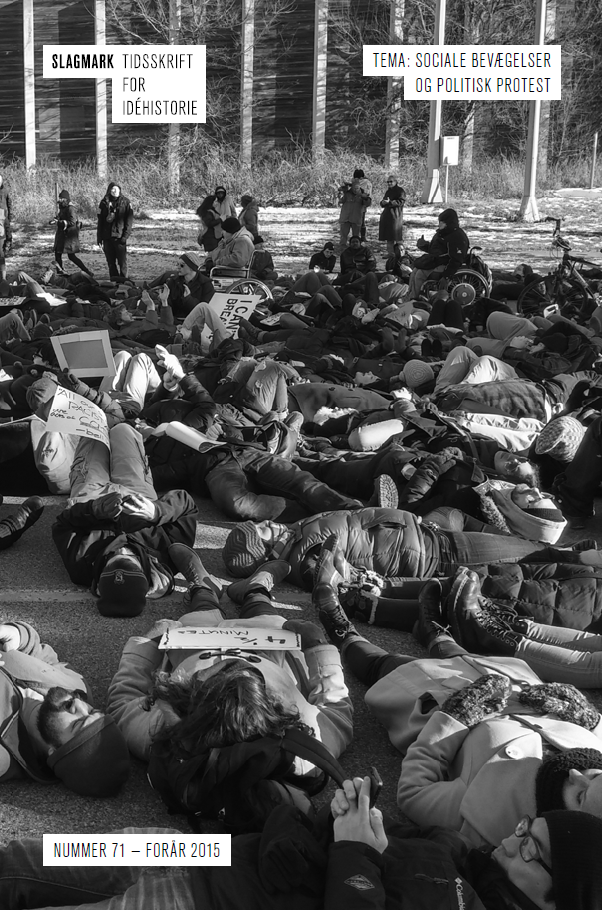A Cause Without Rebels? Om emancipationens forsvundne subjekt
DOI:
https://doi.org/10.7146/sl.v0i71.107306Keywords:
Marx, Althusser, Subject, Working class, RevolutionAbstract
It was Marx who first formulated what later became known as the idea of the working class as an ‘emancipatory subject’. In his view, the workers alone were able to orchestrate a revolution that would put an end to capitalism. The purpose of this paper is to show that this line of thought is ideological by Marx’s own standards, and that while the working class never constituted the coherent political subject that Marx wanted it to become, its non-existence produced distinct theoretical effects not just in his work, but also (taking Lukács as an example) in the Marxist tradition. After a brief discussion of the different criticisms of the idea of the working class as emancipatory subject put forward by Hardt, Negri, Laclau, and Mouffe, an attempt is made to demonstrate how Althusser’s structural approach is better suited to formulate an alternative to the traditional view. Finally it is argued that this alternative stays within a general Marxist framework.
References
Althusser, L. (red.). (1996). Lire le Capital. Paris: PUF.
Althusser, L. (1996b). Pour Marx. Paris: La Découverte.
Boltanski, L. & Chiapello, E. (2007). The New Spirit of Capitalism. London: Verso.
Bussard, R. L. (1987). The ’Dangerous Class’ of Marx and Engels: The Rise of the Idea of the Lumpenproletariat. History of European Ideas, 8(6), 675-692. doi:10.1016/0191-6599(87)90164-1
Cowling, M. (2002). Marx’s Lumpenproletariat and Murray’s Underclass: Concepts Best Abandoned?. I M. Cowling & J. Martin (red.), Marx’s ‘Eighteenth Brumaire’: (Post)modern Interpretations (s. 228-242). London: Pluto Press.
Filc, D. & Ram, U. (2014). Marxism after postmodernism: Rethinking the emancipatory political subject. Current Sociology, 62(3), 295-313. doi: 10.1177/0011392114525794
Hardt, M. & Negri, A. (2003). Imperiet. København: Informations Forlag.
Hardt, M. & Negri, A. (2005). Multitude: War and Democracy in the Age of Empire. London: Penguin Books.
Laclau, E. & Mouffe, C. (2001). Hegemony and Socialist Strategy. London: Verso.
Lukács, G. (1990). History and Class Consciousness. London: Merlin Press.
Marx, K. (1933). Klassekampene i Frankrig 1848-50. København: Mondes Forlag.
Marx, K. (1947). Louis Bonapartes 18. Brumaire. København: Forlaget Fremad.
Marx, K. (1968). Økonomi og Filosofi. København: Gyldendal.
Marx, K. (1970-72). Kapitalen. København: Rhodos.
Marx, K. (1973). Filosofiens Elendighed. Viborg: Jørgen Paludans Forlag.
Marx, K. (1974). Pariserkommunen (Borgerkrigen i Frankrig). København: Forlaget Tiden.
Marx, K. & Engels, F. (1990). Werke: Bd. 2. Berlin: Dietz Verlag.
Mazlish, B. (1990). Marx’s Historical Understanding of the Proletariat and Class in
19th -Century England. History of European Ideas, 12(6), 731-747. doi: 10.1016/0191-6599(90)90207-U
Pedersen, T. M. (2012, 17. januar). En skattereform til dem der trækker læsset. Berlingske Tidende. Hentet fra http://www.b.dk/kommentarer/en-skattereform-til-dem-der-traekker-laesset
Thoburn, N. (2002). Difference in Marx: the lumpenproletariat and the proletarian unnamable. Economy and Society, 31(3), 434-460. doi: 10.1080/0308514022015188
Žižek, S. (2012). Living in the End Times. London: Verso.





